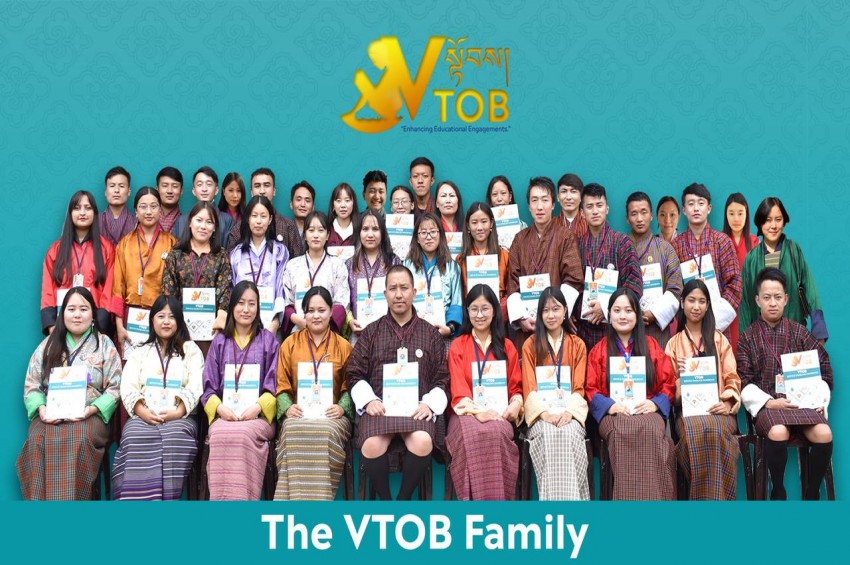This jolly always happy man wakes up early everyday and prepares himself to start his daily work in a dingy shed infront of his house where a small heap of charcoal lay around the hearth(fire oven also known as ARAN locally) and many pieces of damaged iron tools and impliments wait for his skilled hand to give them life again. And the village folks coming as early as possible to get their tools repaired crowd his workplace and wait but not bored even the whole day as this gentleman continues to entertain them with his wits and humour while working with expertise skilfully, gained through long years of exoerience. He is the 76 year old Mr. Durga Prasad Biswakarma popularly known as 'Durgay' from Kuchin village of Tendru Gewog. Kuchin is a Chiwog with about 226 households and almost 700 eligible voters. He is the only active blacksmith in the locality today who has been in this profession for almost half a century which he learnt from his late father. A few other blacksmiths of yesteryears in the village have stopped practising this craft and thus he stands as a silent hero who has worked hard to preserve this old culture in the community. Perhaps he is the only active and hardworking person in the entire Gewog as all people come to him for their iron works. A few blacksmiths in different villages are either not working full time or they are unprofessional. His 55 year old bachelor brother helps him sometimes who can not speak as he lost his speech during childhood due to prolonged suffering from epilepsy. Despite many rituals performed with several fowls and goats sacrificed he could not be cured to regain his speech as perhaps the 'voot and pret " or the local deties could not be appeased. Blacksmith plays a very vital role in rural economy where people depend upon agriculture. He makes all types of agricultural iron tools like spade, fork, shovel and weapons like patang, khukuri, cicle and knives to mention a few, besides the regular repair works. As such many communities of Tendru Gewog would find it difficult to cultivate their lands without his hard work in providing them with unfailing service of efficient workmanship. Besides Tendru Gewog, people from Norgaygang (Bara) and Pemaling(Biru) Gewogs too avail his service when convenient as they dont have good blacksmiths there. He earns about Nu.15,000/ to Nu.20,000/ in a month besides cultivating his land. There are also direct and indirect expenses he incurs at an average of Nu.4000/ to Nu.7,000/ per month for electricity, charcoal consumption, repair and mantainance of machineries and travel etc. At an average almost 5 to 8 bags of charcoal weighing about 25 kg are consumed per month depending upon workload and each bag cost him Nu.400/ . He collects fallen trees and decaying logs from forest to make charcoal paying a minimal royalty to the Forest Department and also buys from people as and when available. In olden days people mostly paid in kind during harvest seasons for the whole year of availing service of blacksmiths. They also provided free labours during cultivation times and did help in making and collecting charcoals from the forests. However today cash payment has replaced it though some also do provide free labour in times of need. Though not much help and support comes from elsewhere, it was only during the time of first ever elected government of DPT that he was offered a sum of Nu.80,000/ as a support. With this he built a shed to use as store cum workplace and bought machineries and other electrical gadgets making his work easier thereafter. The traditional method was very tedious and tiresome discouraging young generation to take up this art for a living. Though such tools and impliments are available in the market they are either too expensive but not durable or not comfortable using them, as opined by many. And repairing these tools when damaged would not be possible without this active man. He charges Nu.50/ for repairing cicle, spade, fork and such other small tools and Nu.70/ for weapons like patang and khukuri. The charges depends upon size and types of tools. A new patang or khukuri complete with sccabard and handle costs between Nu.1200/to Nu.2000/. The big dilema is how the comforts and convenience of availing his skill at an affordable expense today will affect the rural lives in future as he can not continue working as hard due to old age and fragile health condition which is a natural process. Indeed his contribution to the communities is an immense service to the Tsa Wa Sum, rightly deserving a suitable reward. Such a "Silent Hero" must be appreciated and recognised for selfless sacrifice and hard work in preserving our culture so important in day to day life despite many odds and challenges. It is but a sad reality that due to the still prevailing caste system since the time immemorial this craftmanship is not learnt by other caste except Biswakarma which I feel is redundant and irrational today. This can engage many youths and thus solve unemployment to a certain extent in the community through mechanisation and removing caste based restrictions with support and initiatives by all the stakeholders, the society as a whole. When I asked him if he has any message for the community, he said he is very grateful to the people enabiling him to preserve this art and craft thus far and wish it continues to survive through the viccitudes of tine. I also suggested him to upgrade it with full mechanisation and establish a workshop for all types of iron works. And as he is fortunate to own land and house close to a busy motorable road I further shared my view that he can even start an Automobile Section as well for minor repair and mantainance works to begin with. Doing this his children need not go far off to work for others but has high potential of self employment as well as create jobs for many unemployed youths. Listening patiently to my suggestions he looked at me and smiled with glowing face perhaps I spoke his mind, and he said lack of fund obstructs such plan and idea. I then appraised him to explore the possibilities of availing government grants or loans from financial institutions who would finance to protect such old culture at a subsidised interest rates. And if fortunate he could also receive grants or aids from government or relevent agencies. All throughout our conversation my views and suggestions probably amused him with more excitement as he nodded in acceptance saying he would now take initiatives to move forward. He further added that his dreams will be accomplished if there are such possibilities. With eleveen children from three wives(5 sons and 6 daughters), two daughters still studying in higher secondary classes while others in white collar jobs and in small businesses, he finds it difficult to continue due to old age. However two of his sons are now considering joining him after much persuassion, he confided with me. Hence there is a hope this ageold craft will continue to survive through young generation. The grassroot leaders or the local government alongwith the public must take initiatives to encourage our young generations with favourable incentives so that such important craft does not vanish from the communities through the passsge of time which increases the ratio of dependency. As it is said that working hard and earning fortune is for self growth but not a life lived fully while speaking for others for support to help them too grow is a life well spent. I hope my intention to ignite a dying desire of a hard working man 'to walk another extra mile' to fulfil his dream too is a service to the community. The purpose of my writting this is to bring in focus, the silent heroes in rural communities for encouragement who certainly deserves our appreciation and support. I have my highest regards to such a wonderful people decorating and adding beauty to the society, without whose hard work and sacrifice we would be gradually loosing our identity. Let's create awareness for such important art and craft that has survived through time due to selfless service of many such silent heroes like him. I shall remain ever grateful to everyone for suggestion and support as to how we can protect our identity besides probably a vague idea I could share through this writeup. (The Author, Retd. Major ChandraRaj Gurung is a former Superintendent of Royal Bhutan Police. The story is his own and not implied by the paper)
×
- Home
- Of Arts and Crafts
Related Posts
Bhutan’s Graduation from Least Developed Country (LDC)...
13th November, 2022
VTOB offers a free after-school enrichment program in...
13th November, 2022
Digital integration of Bhutan’s education systems...
19th October, 2022
Rough ways ahead of Bhutanese applying for Australian...
01st October, 2022
Underutilization of counseling services across the colleges under...
27th September, 2022
Lengthy admission time stresses 22 Bhutanese scholarship MBBS...
03rd September, 2022
Time to change the lengthy enrollment time for...
03rd September, 2022
Derogatory comments passed on the Bhutanese studying and...
03rd September, 2022
Popular News
-
Prime Minister Explores Bilateral Opportunities in India Visit...
23rd March, 2024 -
Bhutan's Economic Growth Slows to 4% in FY...
23rd March, 2024 -
Bhutan's Agricultural Exports Gain Momentum in ASEAN Markets...
19th June, 2023 -
Domestic Transactions Worth Nu.237.11 billion Recorded in 1st...
19th June, 2023 -
Examining the Reality of Civil Servants' Resignations and...
19th June, 2023 -
Inflation Surges: Rising Prices Pose Economic Challenges as...
19th June, 2023 -
ACC Takes a Step Towards Integrity...
19th June, 2023
Copyright © 2024 The Journalist. All Rights Reserved.

















